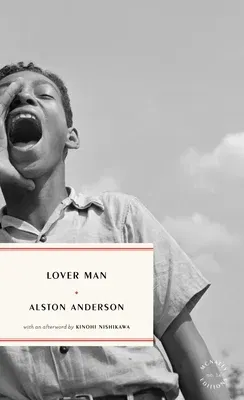Alston Anderson
(Author)Lover ManPaperback, 7 February 2023

Temporarily out of stock
Free Delivery
Cash on Delivery
15 Days
Free Returns
Secure Checkout

Print Length
208 pages
Language
English
Publisher
McNally Editions
Date Published
7 Feb 2023
ISBN-10
1946022543
ISBN-13
9781946022547
Description
Product Details
Author:
Book Format:
Paperback
Country of Origin:
US
Date Published:
7 February 2023
Dimensions:
20.83 x
12.95 x
2.29 cm
ISBN-10:
1946022543
ISBN-13:
9781946022547
Language:
English
Pages:
208
Publisher:
Weight:
317.51 gm